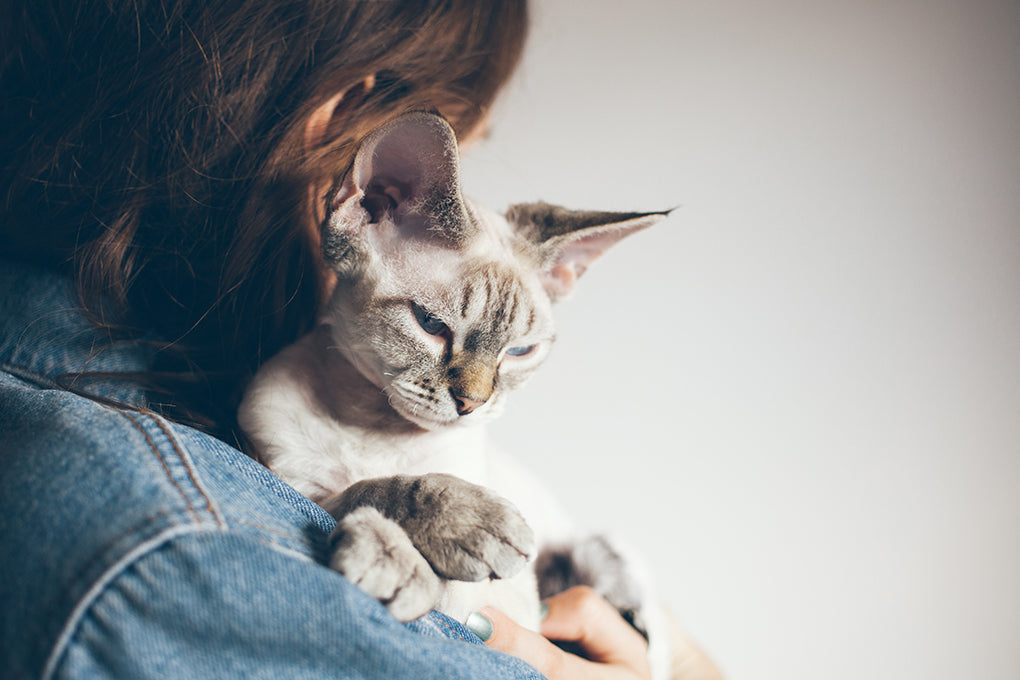
How to detect and treat breast cancer in cats?
Learning that your pet has cancer can be a terrible shock. If you've noticed signs that your cat is sick and you suspect cancer, this can be a very stressful time! We understand that you may be anxious and have many questions.
- Click to learn more: 👉 Support your cat fighting breast CANCER with our NATURAL product 🐱
Here at HomeoAnimo ™ , our team of experts and pet lovers are here to help you through this difficult time! We want to use our knowledge and experience in the pet health industry to provide you with the help and information you need during this time.
In this article, we'll examine the causes and risk factors for mammary cancer in cats, as well as the symptoms you can look for. We'll then discuss life expectancy and available treatments for this cancer. I hope this article provides you with the information you need!
If you still have questions about cancers affecting cats, why not check out our complete guide to cancer in cats to learn more?
What is breast (mammary) cancer in cats?
Tumors can develop in the mammary glands (breast tissue) located on their belly. Cats have four mammary glands on each side of their belly, and a mammary tumor can develop in any of these glands.
Breast cancer is the third most common cancer in cats, and the majority of these tumors are malignant, meaning they are cancerous and can spread to other areas of the body.
Female cats are more likely to develop this cancer than male cats. Early neutering is one of the best ways to prevent this cancer. Neutering your cat before 6 months of age can reduce the risk by 91% .
Cats over the age of 10 are also at higher risk of developing this cancer. Mammary cancer appears to be diagnosed more frequently in certain breeds, such as Siamese cats, and at a younger age than in other breeds.
Mammary Cancer in Cats: Symptoms
To look for signs of a mammary tumor, it's important to examine your cat frequently. You may notice that your cat's nipples are swollen or you may feel a small, firm lump under the skin near the nipple. Gradually, the tumors will spread to other mammary glands and nearby lymph nodes.
In advanced cases, the tumor can become an open sore and may even become infected. Be sure to check your cat regularly to notice any unusual lumps as early as possible!
You may be wondering if mammary cancer is painful for cats. Generally, during the early stages, your cat does not feel any pain. As the tumors grow and spread, your cat may feel sick and uncomfortable, especially if the tumors ulcerate (break open) and become infected.
Mammary cancer in cats: life expectancy
The earlier mammary cancer is detected and treated, the better the outcome for the cat! If the tumor is small and has not spread, cats can live 4 years or more after diagnosis. For larger or more advanced tumors, survival time may be as little as a few months.
In most cases, your veterinarian may recommend surgery to remove tumors and affected mammary glands. They may also offer chemotherapy after surgery.
Many pet owners are looking for natural solution options to use alongside conventional treatment.
Our PIPTOANIMO is the Piptoporus Betulini mushroom. Medicinal mushrooms are specially designed to keep the body healthy in cases of cancer and tumors, even for long-term use!
When dealing with cancer, the goal is to strengthen your cat's immune system to fight the disease and to combat and prevent recurrences !
Do you have a pet with breast cancer?
Share your experience or questions with us in the comments below. We're always here to help you manage your pet's health issues - you can always contact us by phone, email, or chat.
If you found this article helpful, we would appreciate it if you could share it on your social media so your friends and family can also be informed - we would appreciate it!























Leave a comment
This site is protected by hCaptcha and the hCaptcha Privacy Policy and Terms of Service apply.